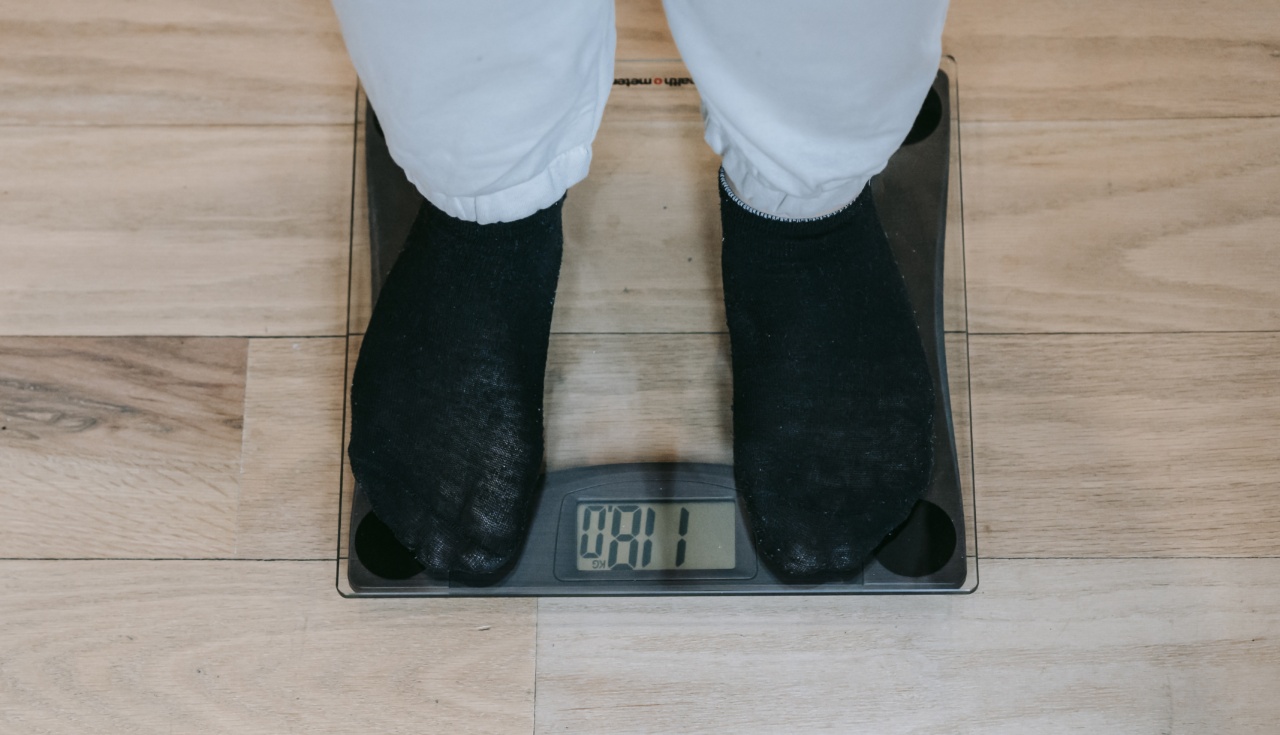Psoriasis is a chronic autoimmune condition characterized by red, itchy patches on the skin. It affects approximately 3% of the world’s population, with no known cure.
While several treatment options exist, recent research suggests that weight management, particularly through a low-calorie diet, can help alleviate symptoms and improve overall quality of life for individuals with psoriasis.
Understanding Psoriasis
Psoriasis occurs when the immune system mistakenly attacks healthy skin cells, speeding up their growth cycle and causing them to build up rapidly on the surface of the skin.
This results in the formation of thick, silvery scales and red patches that can be itchy and painful.
The exact cause of psoriasis is still unclear, but it is believed to have a genetic component. Certain triggers, such as stress, infections, or certain medications, can worsen the symptoms in susceptible individuals.
The Link between Psoriasis and Weight
Emerging evidence suggests a strong association between psoriasis and weight. Several studies have found that individuals with psoriasis are more likely to be overweight or obese compared to those without the condition.
Psoriasis and excess weight share common pathways, including chronic inflammation and insulin resistance. Adipose tissue, or fat cells, produce pro-inflammatory substances that can exacerbate psoriatic symptoms.
Furthermore, excess fat tissue can impair insulin function, potentially worsening existing psoriatic inflammation.
The Benefits of a Low-Calorie Diet
A low-calorie diet, when implemented correctly and under medical supervision, has shown promising results in managing psoriasis symptoms and improving overall health. Below are some of the specific benefits of a low-calorie diet:.
1. Reduced Inflammation
Excess weight and adipose tissue can contribute to systemic inflammation, which can trigger psoriatic flare-ups.
By adopting a low-calorie diet, individuals can lose weight and reduce the inflammatory burden on their bodies, potentially leading to a decrease in psoriasis symptoms.
2. Improved Insulin Sensitivity
Insulin resistance, often seen in individuals with excess weight, can exacerbate inflammation and psoriatic symptoms.
A low-calorie diet can facilitate weight loss, resulting in improved insulin sensitivity and better blood sugar control, potentially reducing psoriasis severity.
3. Enhanced Response to Treatment
Research suggests that individuals with psoriasis who maintain a healthy weight may respond better to various treatment modalities, such as topical medications, phototherapy, or systemic medications.
By adopting a low-calorie diet, individuals can optimize their response to therapeutic interventions and maximize treatment effectiveness.
4. Cardiovascular Health Benefits
Psoriasis is associated with an increased risk of cardiovascular diseases, such as heart attacks and strokes. Excess weight further compounds this risk.
By following a low-calorie diet and losing weight, individuals with psoriasis can reduce their cardiovascular risk factors, promoting better heart health.
5. Positive Impact on Mental Well-being
Living with psoriasis can significantly impact one’s mental well-being, leading to increased levels of stress, anxiety, and depression.
Adopting a low-calorie diet and achieving weight loss goals can improve self-esteem and body image, potentially alleviating some of the psychological distress associated with the condition.
Creating a Healthy Low-Calorie Diet for Psoriasis Management
If you have psoriasis and are considering a low-calorie diet, it is essential to approach it in a healthy and sustainable way.
Consult with a healthcare professional, such as a registered dietitian or dermatologist, to tailor a diet plan specifically for your needs. Consider the following tips:.
1. Focus on Nutrient-Dense Foods
Opt for whole, unprocessed foods that are rich in nutrients. Include plenty of fruits, vegetables, lean proteins, and whole grains in your diet.
These foods will not only provide essential nutrients but also help with weight loss and overall health improvement.
2. Monitor Caloric Intake
While it is necessary to reduce overall caloric intake for weight loss, it is important not to drastically restrict calories. Consult with a healthcare professional to determine the appropriate caloric range for your weight loss goals and health needs.
3. Stay Hydrated
Proper hydration is essential for overall health and can also aid in weight loss. Drink plenty of water throughout the day and limit sugary beverages and alcohol.
4. Practice Mindful Eating
Pay attention to your body’s hunger and fullness cues. Practice mindful eating by slowing down during meals, savoring each bite, and being aware of your body’s satiety signals.
This approach can prevent overeating and promote healthier eating habits.
5. Regular Physical Activity
Incorporate regular exercise into your routine. Physical activity not only contributes to weight loss but also provides numerous additional health benefits.
Aim for a combination of cardio, strength training, and flexibility exercises to maximize results.
Conclusion
While psoriasis is a chronic condition without a cure, adopting a low-calorie diet can offer significant benefits in managing symptoms and improving overall well-being.
Weight management plays a crucial role in mitigating inflammation and insulin resistance, which are key factors in psoriatic pathogenesis. By consulting with healthcare professionals and making informed choices, individuals with psoriasis can embark on a journey towards better control of their symptoms and a higher quality of life.





























